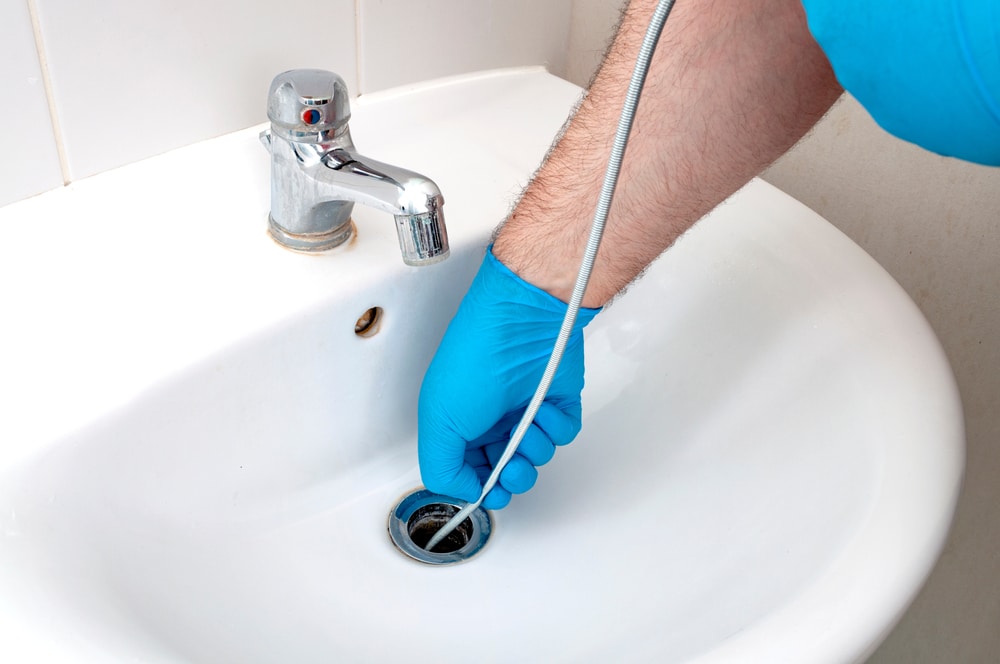Keeping your drains clean is an important part of home maintenance. Clean drains help water flow smoothly and prevent many plumbing problems. Ignoring your drains can lead to clogs which can cause backups and even damage to your plumbing system.
In this article, we will explain why regular drain cleaning is crucial for keeping your plumbing system healthy. You will learn practical DIY tips to keep your drains clear and functioning well. We’ll also discuss common mistakes people make when trying to clean their drains so you can avoid them. Lastly, we’ll cover when it’s best to call a professional for help with drain cleaning.
By understanding and following these tips, you can keep your home’s plumbing in good shape and avoid expensive repairs. Let’s dive into these essential drain cleaning tips for homeowners.
I. Understanding the Importance of Regular Drain Cleaning
Regular drain cleaning is crucial for keeping your home’s plumbing system in good shape. Clogged and blocked drains can cause significant problems. Regular cleaning helps prevent these issues before they become major headaches.
Preventing Clogs and Blockages
Clogs and blockages can cause water to back up into your sinks, tubs, and showers. This can lead to messy overflows and water damage. Regular drain cleaning helps keep the pipes clear, allowing water to flow freely. By removing debris like hair, grease, and food particles, you can avoid many common drainage problems.
Extending the Lifespan of Your Plumbing System
When drains are clean, your plumbing system doesn’t have to work as hard. This reduces wear and tear on your pipes. Clean drains help extend the lifespan of your entire plumbing system. Investing a little time in regular cleaning can save you money on costly repairs and replacements down the road.
II. DIY Drain Cleaning Tips Every Homeowner Should Know
There are simple and effective ways to keep your drains clean without calling a professional. Here are some handy DIY tips to help you maintain clear drains in your home.
Using a Plunger Effectively
A plunger is a simple tool that can be very effective. For small clogs, a few firm plunges can often clear the blockage. Make sure there’s enough water in the sink or tub to cover the plunger’s rubber cup for a good seal. Plunge with a steady, up-and-down motion to dislodge the clog.
Homemade Drain Cleaning Solutions
You don’t need harsh chemicals to clean your drains. A mixture of baking soda and vinegar works great. Pour half a cup of baking soda into the drain, followed by half a cup of vinegar. Let it fizz for about 15 minutes, then flush with hot water. This natural solution helps break down buildup and keeps your drains flowing smoothly.
Benefits of Drain Screens
Drain screens are simple items that can make a big difference. They sit over your drains and catch hair, food particles, and other debris before they can go down and cause clogs. Use drain screens in your sinks, tubs, and showers to keep unwanted items out of your pipes. Regularly clean the screens to keep them effective.
By following these DIY drain cleaning tips, you can keep your home’s plumbing system in good working order and avoid many common drainage problems.
III. Common Mistakes to Avoid When Cleaning Your Drains
While there are effective methods for cleaning your drains, it’s also important to know what not to do. Avoiding common mistakes can save you a lot of trouble and keep your plumbing in better shape.
Using Harsh Chemical Cleaners
Many people think using strong chemical cleaners is the best way to clear a clog. However, these products can be very harsh on your pipes. They can corrode pipes over time, leading to leaks. Instead, try natural solutions or call a professional when you face tough clogs.
Ignoring Early Warning Signs
It’s easy to overlook small signs of a problem, like slow drainage or minor clogs. But these can indicate a bigger issue. Ignoring these early signs can lead to more severe blockages and expensive repairs. Always address drain issues as soon as they appear.
Overusing Tools Like the Drain Snake
Drain snakes are useful for clearing clogs, but overusing them can damage your pipes. Pushing too hard or using the wrong size snake can scratch or break pipes. Use these tools carefully and only when necessary to avoid causing more harm than good.
IV. When to Call a Professional for Drain Cleaning
Sometimes, DIY methods aren’t enough to solve your drain problems. Knowing when to call a professional can prevent further damage and ensure your drains are properly cleaned.
Persistent or Severe Clogs
If you have a clog that keeps coming back or just won’t budge, it’s time to call a professional. Persistent clogs may be a sign of a deeper issue in your plumbing system that needs specialized equipment to fix.
Foul Odors from Drains
Unpleasant smells coming from your drains can be a sign of a bigger problem, like a sewer line issue. A professional plumber can identify the source of the smell and fix it before it affects your whole house.
Slow Drainage Issues in Multiple Fixtures
If you notice that multiple drains are slow at the same time, this could indicate a mainline blockage. This problem affects your entire plumbing system and requires professional attention to resolve.
Conclusion:
Keeping your drains clean is essential for a healthy, smoothly running home. By understanding the importance of regular drain cleaning and following some simple DIY tips, you can prevent many common plumbing issues. Remember to avoid common mistakes like using harsh chemicals or ignoring early signs of trouble. And when faced with persistent clogs, bad odors, or slow drainage in multiple fixtures, calling a professional can save you from bigger headaches down the line.
Taking care of your drains doesn’t have to be complicated. With the right knowledge and a little effort, you can keep your plumbing system in top shape. For help with more challenging drain problems or other residential plumbing services, contact Glasscock Plumbing Services. Our team of experts is ready to help you maintain a healthy home. Call us today!

















